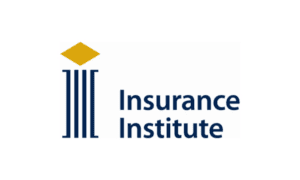Elon Musk’s Tesla gets a breather in insurance class action

Elon Musk’s Tesla gets a breather in insurance class action | Insurance Business America
Motor & Fleet
Elon Musk’s Tesla gets a breather in insurance class action
Insurance overcharging lawsuit grinds on
Motor & Fleet
By
Matthew Sellers
Tesla has been granted additional time to prepare its defense in a class action lawsuit alleging overcharging for insurance. The case, which claims Tesla inflated insurance premiums based on inaccurate crash warnings, is set to be reviewed for class-action status in October 2025, Judge Michael Markman of Alameda Superior Court in Oakland has decided.
A Tesla customer initiated the lawsuit last year, representing drivers from 11 states, asserting that the company’s insurance premiums were unjustly raised due to “false” crash alerts rather than actual driving behaviors. The complaint states that Tesla’s insurance policies, directly sold to customers, breached California’s unfair competition law and violated driver contracts.
At a recent hearing, Tesla’s attorney, Min Kang, explained the delays in gathering necessary information to build a defense, citing the involvement of multiple states and the departure of a key employee. Kang mentioned, “Just last week we lost our main contact at the company,” highlighting the complexities involved in the process.
Despite Tesla’s denial of any wrongdoing, the company faced setbacks last year and in June when it failed to dismiss several claims in the case. The lawsuit points to Tesla’s use of real-time driving data to determine insurance premiums, which are based on a “safety score” incorporating metrics like hard braking, aggressive turning, and forward collision warnings. Many drivers reported receiving unwarranted collision warnings, adversely impacting their safety scores and, consequently, their insurance rates.
Tesla’s venture into the insurance market has been a prominent move by CEO Elon Musk. Initially launched in California, Tesla Insurance promised premiums up to 30% lower than traditional insurers. The company claims it can offer competitive rates by leveraging its deep understanding of its vehicles’ technology and safety features.
Tesla’s history with insurance began with the InsureMyTesla program in Australia and Hong Kong 2016, which expanded into North America in 2017 through partnerships with Liberty Mutual and Aviva. However, this initiative did not meet Musk’s expectations, prompting the creation of Tesla Insurance in 2019. This program uses real-time driving data to offer personalized rates, aiming to provide a more compelling option for Tesla owners. The company recently reported hitting over half a billion dollars in premiums.
Insurance behemoth, Berkshire Hathaway’s Warren Buffet, told his shareholders at the time that he thought Tesla’s insurance plan was a bad idea. He said: “The success of the auto companies getting into the insurance business is probably as likely as the success of the insurance companies getting into the auto business. I’d bet against any company in the auto business [getting into insurance].”
In response to industry skepticism, Tesla’s move to self-insure was met with mixed reactions. Critics questioned the company’s ability to accurately price insurance, while others, like Ian Sweeney from Trov, saw potential benefits in integrating insurance with Tesla’s technological advancements.
“First of all, when Tesla first came into the industry, they didn’t actually keep the risk themselves; they were just a distribution channel,” Adam Denninger, global industry leader for insurance at Capgemini told IBA.
“What you’ve seen for a long time is that a lot of technology companies coming into the industry on the distribution side – offering new agent experiences, new mechanisms of gathering data, even occasionally doing the underwriting piece as well – all have had a similar experience. They lost a lot of money.”
“[These companies] came in thinking that the technology was the hard part, and thinking insurance is this old, slow backwater industry,” Denninger said.
“[They thought] it’s not that complicated, and they could solve it. But they realized [insurance] was pretty complicated, and it’s difficult to do it without losing your shirt. I think that’s what happened to Tesla.”
Related Stories
Keep up with the latest news and events
Join our mailing list, it’s free!






